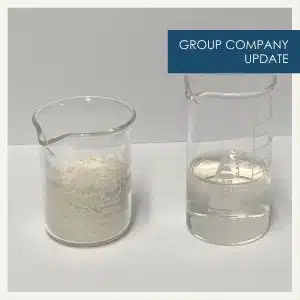With climate change being a key focus at the moment, we often see a lot of companies talking about green futures. Some of which we immediately deem trustworthy, but we might question the authenticity of others.
The definition of greenwashing
Greenwashing is when a company claims to be environmentally friendly or sustainable without actually stepping up and making crucial changes.
In a world where we need a clean, green future, there are plenty of ‘sustainable’ options. But some may be less trustworthy than you’d assume. With global warming becoming more prevalent every day, consumers are making more informed decisions about what they buy and where they buy it. Unfortunately, there are a lot of companies manipulating this to their advantage.
The history of greenwashing
The term ‘greenwashing’ was created by a journalist in the 1980’s as a way to easily describe corporate environmental claims that are untrue. While the term became well known in the 80’s, there are examples even further back in history.
In the 1960’s the anti-nuclear movement began as people began to acknowledge how damaging nuclear power is, as well as how unsafe it was for workers and the general population. And so, the adverts started coming out. Photographs of nuclear plants set against natural landscapes with promises that the plants were safe, neat, odourless, and simply in place to provide power. While they did have a hand in producing cheap power, with less emissions than coal plants, they were far from safe. Which was evident from multiple cases of nuclear meltdowns, as well as the implication of nuclear waste.
Fast forward to the 80’s. An oil company heavily invested in their marketing to promote the businesses ‘environmental consciousness’. The company won awards for the campaign that showed them protecting wildlife despite continuous unsustainable practices going on behind closed doors. The epitome of greenwashing.
Nowadays, greenwashing is everywhere we look, and we might not even be aware of it. There are companies twisting the truth to push their products. An example of this is water companies pushing the narrative of bottled water being better for the planet when advertising their ‘environmentally friendly’ recycled bottles. Truthfully, less than 1/3 of plastic bottles end up being recycled meaning around 70% end up in landfill or oceans. Another example could be food chains switching to paper cups/straws in an attempt to reduce plastic – but the straws actually aren’t even recyclable.
How to avoid being misled
As time goes on, greenwashing becomes more prevalent and more important. Consumers are becoming increasingly mindful about purchases. Companies need to maintain a decent level of corporate responsibility in terms of sustainability to keep customers. A 2015 poll showed that 66% of global customers are willing to pay more for environmentally sustainable products – and over 70% for millennials.
So, how can you be sure that a company is being sincere with its environment pledges, and not using sustainability as a corporate hook? It’s good news that many brands are trying to improve their environmental standing. But it’s important to understand when it’s a publicity stunt.
Mostly, it comes down to doing your research. Look further than the buzzwords and see if there is any evidence to support a business’s sustainable claims. If possible, see if they can be validated by a third-party. Do they have partnerships with environmentally conscious companies or agencies? Finally, look past the advertising. If a company shares a nice campaign saying they care for a cause, see if there is evidence that they are actively supporting the cause and backing up their claims with quantifiable actions.







